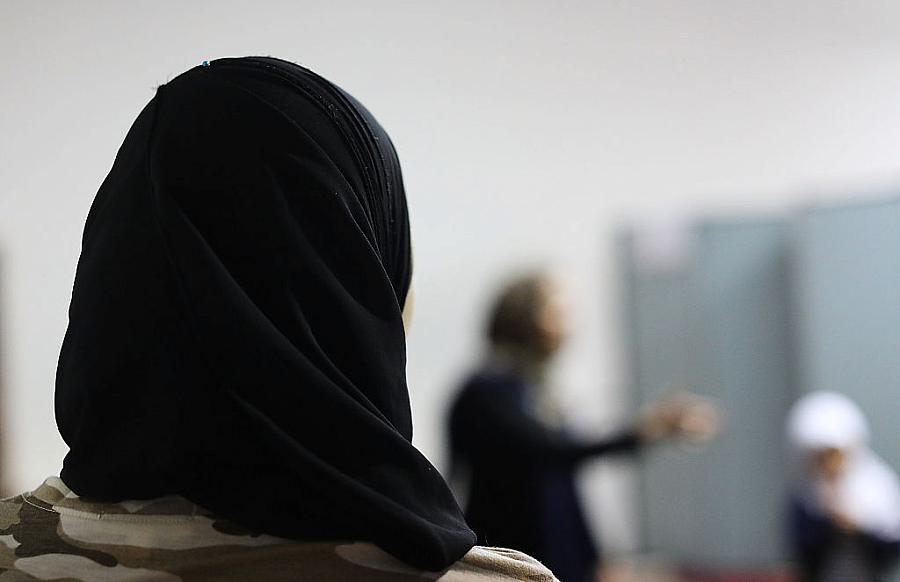New reporting project will explore experiences of Muslim women during childbirth in America

Photo by Spencer Platt/Getty Images
In the United States, the experiences of Muslim women, particularly during childbirth, are often overlooked. In a nation that prides itself on inclusivity, it is important to shine a spotlight on the perinatal period of Muslim women and the treatment they receive.
While discussions around maternal health disparities have gained prominence, the intersectionality of Muslim women's experiences remains largely unexplored. The cultural and religious dimensions add layers to their narratives that can significantly impact birthing outcomes. Understanding how these factors intersect with health care systems is crucial for dismantling barriers and fostering more inclusive and effective care.
As a 2023 Impact Fund for Reporting on Health Equity and Health Systems grantee here’s what I plan to focus on for my forthcoming reporting project:
Religious observances and cultural sensitivities: Muslim women often adhere to specific religious observances during pregnancy and childbirth. From dietary restrictions to modesty concerns, these practices can clash with standard medical protocols. A lack of culturally attuned providers can lead to negative outcomes as well. Sensitivity to these practices can contribute to a more positive birthing experience for Muslim women.
Stereotypes and stigmas: The prevailing societal stereotypes about Islam and Muslims can inadvertently seep into health care settings, influencing how Muslim women are treated regardless of their pregnancy status. Unconscious biases can lead to delayed care, inadequate pain management, or even the dismissal of their concerns. Investigating these biases is a critical step in challenging and dismantling the stereotypes that adversely affect maternal health outcomes for Muslim women.
Advocating for informed consent: Muslim women, particularly those with limited English proficiency, may face challenges in fully understanding their birthing options. Exploring how health care institutions can provide comprehensive, accessible, and culturally sensitive information is vital for empowering Muslim women to make informed decisions about their care.
Discrimination and microaggressions: Reports of discrimination and microaggressions against Muslim women in health care settings have surfaced, revealing an alarming aspect of their birthing experiences. Instances of religiously insensitive comments, stereotyping, or disrespectful behavior can contribute to increased stress and anxiety, negatively impacting both mental and physical health. Investigating these occurrences can shed light on areas where cultural competency training and anti-discrimination measures are urgently needed.
Postpartum challenges: The focus on Muslim women’s perinatal experiences should also consider the postpartum period. Issues such as postpartum depression and access to postpartum care can be compounded by cultural and religious factors.
The role of community and religious leaders: Engaging with these leaders can offer insights into cultural norms, religious practices, and community expectations. Collaborating with them can bridge the gap between health care providers and Muslim communities, fostering a more inclusive and trusting healthcare environment.
My reporting project will explore Muslim women's birthing outcomes in America and potential clinical and policy changes and solutions that could improve those experiences. The goal is not only to identify challenges but also to pave the way for culturally competent, inclusive, and equitable health care practices that honor the diverse experiences of Muslim women during childbirth.
